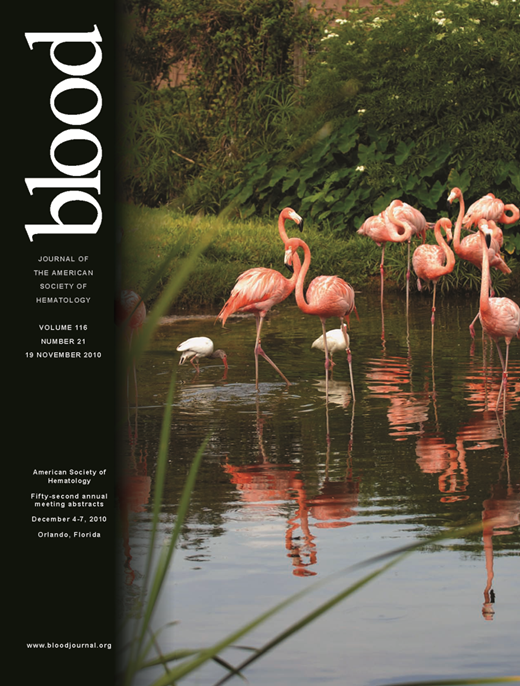Abstract
Abstract 405
Cripto is a member of the EGF-CFC soluble protein family and has been identified as an important factor for the proliferation/self-renewal of ES and several types of tumor cells. The role for Cripto in the regulation of hematopoietic cells has been unknown. Here we show that Cripto is a potential new candidate factor to increase self-renewal and expand hematopoietic stem cells (HSCs) in vitro. The expression level of Cripto was analyzed by qRT-PCR in several purified murine hematopoietic cell populations. The findings demonstrated that purified CD34-KSL cells, known as highly concentrated HSC population, had higher expression levels than other hematopoietic progenitor populations including CD34+KSL cells. We asked how Cripto regulates HSCs by using recombinant mouse Cripto (rmCripto) for in vitro and in vivo experiments. First we tested the effects of rmCripto on purified hematopoietic stem cells (CD34-LSK) in vitro. After two weeks culture in serum free media supplemented with 100ng/ml of SCF, TPO and 500ng/ml of rmCripto, 30 of CD34-KSL cells formed over 1,300 of colonies, including over 60 of GEMM colonies, while control cultures without rmCripto generated few colonies and no GEMM colonies (p<0.001). Next, 20 of CD34-KSL cells were cultured with or without rmCripto for 2 weeks and transplanted to lethally irradiated mice in a competitive setting. Cripto treated donor cells showed a low level of reconstitution (4–12%) in the peripheral blood, while cells cultured without rmCripto failed to reconstitute. To define the target population and the mechanism of Cripto action, we analyzed two cell surface proteins, GRP78 and Glypican-1, as potential receptor candidates for Cripto regulation of HSC. Surprisingly, CD34-KSL cells were divided into two distinct populations where HSC expressing GRP78 exhibited robust expansion of CFU-GEMM progenitor mediated by rmCripto in CFU-assay whereas GRP78- HSC did not respond (1/3 of CD34-KSL cells were GRP78+). Furthermore, a neutralization antibody for GRP78 completely inhibited the effect of Cripto in both CFU-assay and transplantation assay. In contrast, all lineage negative cells were Glypican-1 positive. These results suggest that GRP78 must be the functional receptor for Cripto on HSC. We therefore sorted these two GRP78+CD34-KSL (GRP78+HSC) and GRP78-CD34-KSL (GRP78-HSC) populations and transplanted to lethally irradiated mice using freshly isolated cells and cells cultured with or without rmCripto for 2 weeks. Interestingly, fresh GRP78-HSCs showed higher reconstitution than GRP78+HSCs (58–82% and 8–40%, p=0.0038) and the reconstitution level in peripheral blood increased rapidly. In contrast, GRP78+HSC reconstituted the peripheral blood slowly, still at a lower level than GRP78-HSC 4 months after transplantation. However, rmCripto selectively expanded (or maintained) GRP78+HSCs but not GRP78-HSCs after culture and generated a similar level of reconstitution as freshly transplanted cells (12–35%). Finally, bone marrow cells of engrafted recipient mice were analyzed at 5 months after transplantation. Surprisingly, GRP78+HSC cultured with rmCripto showed higher reconstitution of the CD34-KSL population in the recipients' bone marrow (45–54%, p=0.0026), while the reconstitution in peripheral blood and in total bone marrow was almost the same. Additionally, most reconstituted CD34-KSL population was GRP78+. Interestingly freshly transplanted sorted GRP78+HSC and GRP78-HSC can produce the GRP78− and GRP78+ populations in the bone marrow and the ratio of GRP78+/− cells that were regenerated have the same proportion as the original donor mice. Compared to cultured cells, the level of reconstitution (peripheral blood, total bone marrow, HSC) in the recipient mice was almost similar. These results indicate that the GRP78 expression on HSC is reversible, but it seems to be “fixed” into an immature stage and differentiate with lower efficiency toward mature cells after long/strong exposure to Cripto signaling. Based on these findings, we propose that Cripto is a novel factor that maintains HSC in an immature state and may be a potent candidate for expansion of a distinct population of GRP78 expressing HSC.
No relevant conflicts of interest to declare.
Author notes
Asterisk with author names denotes non-ASH members.

